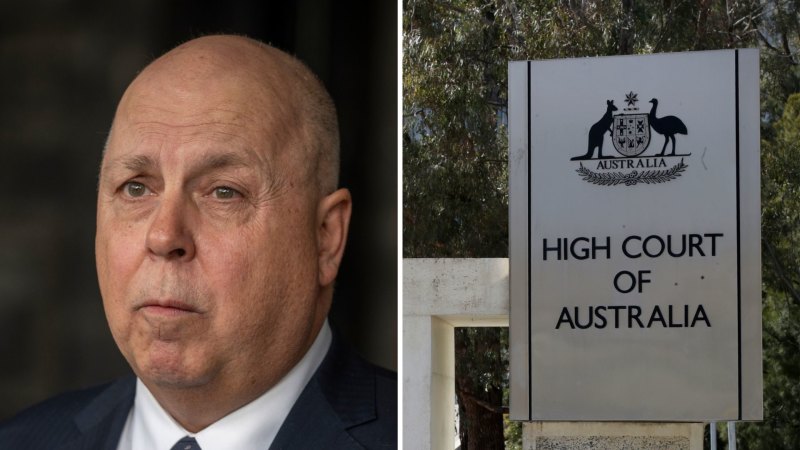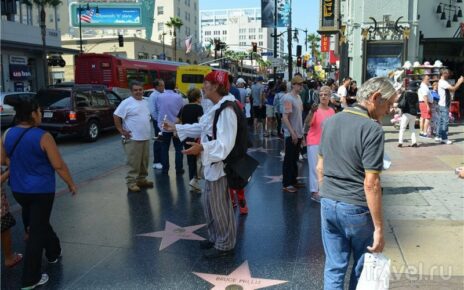Save articles for later
Add articles to your saved list and come back to them any time.
The treasurer has accused the High Court of reimagining the Australian Constitution after it quashed Victoria’s electric vehicle tax, with Tim Pallas warning the state could be forced to completely recast the way it raises revenue.
The Victorian government fears several state taxes and charges that raise billions of dollars every year could now be vulnerable to challenge, including gaming machine taxes, waste charges and car registration fees.
Treasurer Tim Pallas has accused the High Court of reimagining the Constitution.Credit: Eamon Gallagher
In a shock decision on Wednesday, a majority of the High Court found in favour of two Victorian plaintiffs – Chris Vanderstock and Kathleen Davies – that Victoria’s electric vehicle tax, which is charged as a fixed rate per kilometre driven, counted as an excise.
This, the court said, rendered the controversial charge invalid. Under the Constitution, only the Commonwealth has the power to charge an excise – a consumption-based form of taxation that has historically been applied to petrol, alcohol and tobacco.
Pallas said the High Court had in “quite incredible language” reinvented the concept of an excise to include anything that impedes consumption.
“Quite frankly, that’s pretty much the definition of a tax on anything,” he said. “So we’re obviously quite concerned about that.”
Pallas said it was a nervous time for the federation and suggested the ruling could pave the way for challenges to other state charges. Although he was not specific, car registration charges, various waste levies and gaming taxes could be vulnerable because they arguably apply to the consumption of various products.
Vehicle registration fees in Victoria are expected to raise about $2.1 billion this financial year, while poker machine taxes are forecast to net about $1.4 billion.
The government’s zero and low emission vehicles road-user charge – designed to collect cash for roads from electric vehicle users not subject to petrol excise – raised $3.9 million last financial year.
With electric vehicle use rising, the government was on track to collect as much as $6 million from the tax 2023-24.
“We’re going to have to look at which taxes may be impacted, and we’re going to have to think about whether or not there is legislative responses to secure the state’s revenue base or indeed whether there is a role for the commonwealth to play in order to do that,” Pallas said.
The decision also quashes plans by other states to introduce similar charges, with both NSW and Western Australia planning to introduce their own road-user levies for electric vehicles.
NSW Premier Chris Minns has also warned the decision could see billions of dollars slashed from the state’s revenue base if the court’s ruling is applied to other levies. Federal Treasurer Jim Chalmers on Thursday said the Albanese government would take time to consider the High Court’s ruling.
“Australians know that we are big supporters of electric vehicles,” he said.
“Clearly the decision taken by the High Court has implications … the state tax mix, we will work through the issues and the usual considered and methodical way.”
Rick Molloy, secretary of the Victorian branch of the Australian Electric Vehicle Association, said the state’s EV levy had been rushed through without consultation, and was clunky to administer.
Drivers had to send annual photos of their odometers to VicRoads, a system that was open to abuse, he said.
Molloy said members of the association were pleased with the High Court ruling and believed the government should be subsiding and supporting EV uptake, rather than introducing measures that could dissuade people from using them.
Electric Vehicle owner Chris Vanderstock.Credit: Chris Hopkins
But there would eventually need to be some kind of road users’ charge applied to EVs to keep roads funded, he said, perhaps when they hit between 20 and 40 percent of all vehicles and were more affordable.
EVs represent less than 1 per cent of all cars on Australia’s roads.
“Petrol will go up in price and essential workers on lower incomes, such as supermarket workers or nurses, can’t afford an electric car. They will be disadvantaged,” he said.
“We need to find ways of bringing down the cost.”
Victorian Opposition Leader John Pesutto said he was worried the state government would use the court ruling as an excuse to raise other taxes, given the pressures facing the state budget from rising debt and major project cost blowouts.
“This government, when it says it’s looking at taxes, it’s to raise them,” he said.
With Kieran Rooney
Get to the heart of what’s happening with climate change and the environment. Sign up for our fortnightly Environment newsletter.
Most Viewed in National
From our partners
Source: Read Full Article



